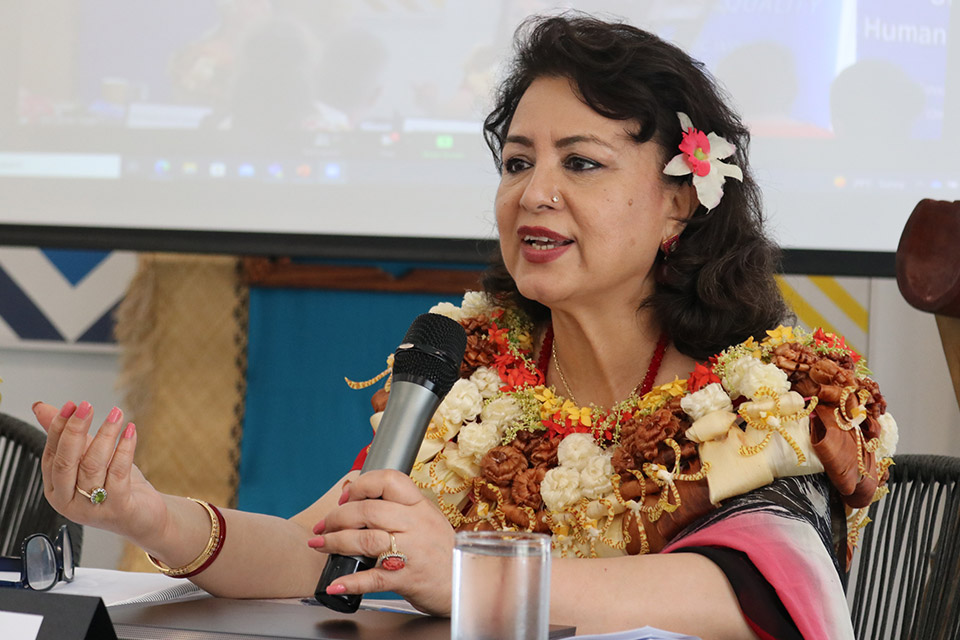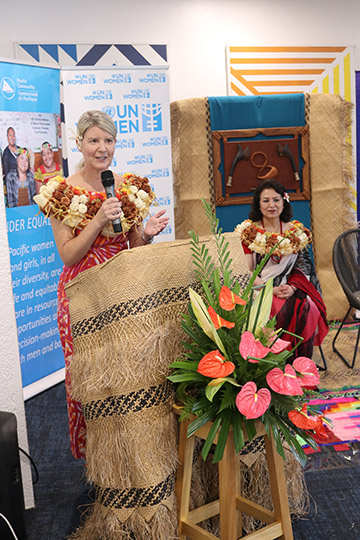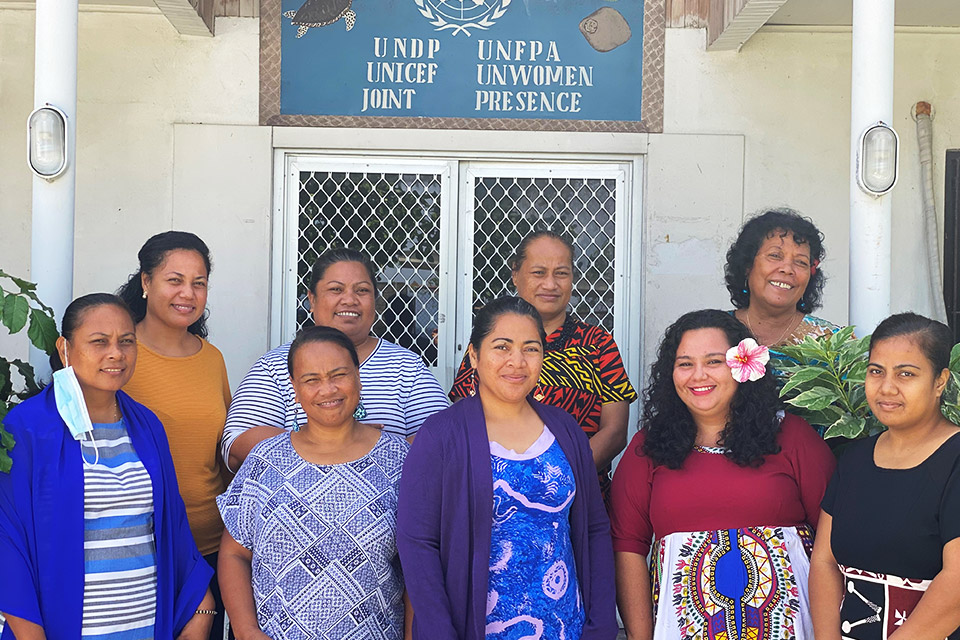Achieving gender equality is everybody’s business – first visit by international committee members to the Pacific a success
Date:
Two leading global experts on the Convention on the Elimination of All Forms of Discrimination against Women (CEDAW) visited the Pacific region for the first time this week, working with ten Pacific Island governments to help advance work to improve the lives of women and girls in the region.

Over three days, Bandana Rana from Nepal and Natasha Stott Despoja from Australia joined around 100 participants for the Pacific Government CEDAW Learning Exchange held from 12–14 July 2022.
The government delegates from Cook Islands, Federated States of Micronesia, Fiji, Kiribati, Republic of the Marshall Islands, Papua New Guinea, Samoa, Solomon Islands, Tuvalu and Vanuatu enhanced their skills and knowledge to enable them to better report on and meet their agreed commitment to advance gender equality in the region – something expected of governments after ratification of treaties, such as CEDAW, at least every four years.

This exchange included the sharing of experiences, learning and examples of good practices by Pacific governments as well as through civil society organisations (CSOs) engagements –supported by the visiting experts.
“To find out where your gaps are, what needs to be done in the next 4 or 5 years - that’s what [the Committee] is doing. This is a clear map, a clear strong mechanism, that every state party should feel is an asset for you, to strengthen you, to create that roadmap for you, for equality, peaceful and just society,” shared Ms Rana.
The CEDAW committee members heard a range of challenges experienced by Pacific Governments faced during regular reporting from the participants. Among these is finding resources, data and statistics and other information needed to show the progress made towards advancing gender equality.
“Gender equality – achieving it is everybody’s business. It’s not up to women, it’s up to all of us. I look forward to working with us all – men, women, boys, girls, non-binary and other people – in order to bring about a world, not just a region, in which gender equality is the norm,” added Ms Stott Despoja.
During her opening remarks, Heike Alefsen, Regional Representative of the United Nations Human Rights Office of the High Commissioner (OHCHR) Pacific Regional Office said, “ I would like to applaud those Pacific Island states that have been meeting their reporting obligations under CEDAW on time and I hope that through this learning exchange, other countries will be encouraged to submit all overdue reports to the CEDAW Committee and establish national mechanisms for reporting and follow ups to assist in their reporting obligations.”
Ms Rana and Ms Stott Despoja travelled to Fiji to participate in the Learning Exchange, with participants joining the event via in-person ‘learning hubs’ in their respective countries
“By knowing and using the Convention, governments have a powerful tool to guide their policy-making and legislation to ensure that women can enjoy all of their human rights and fundamental freedoms; and for achieving gender equality. We are pleased to support this regional exchange, and thank SPC and OHCHR for their strong and ongoing partnership in working with Pacific Island Governments, CSOs and communities to promote gender equality,” said Melissa Stutsel, Officer in Charge, UN Women Fiji Multi-Country Office.

“SPC remains dedicated to supporting member governments with national implementation of their human rights and gender equality commitments, and through this collaboration with our UN counterparts, we hope to see improvements in the lives of women and girls across the Pacific,” stated Miles Young, Director of the Human Rights and Social Development (HRSD) Division of SPC.
The Pacific Government CEDAW Learning Exchange is supported by the Pacific Community (SPC), UN Human Rights Office (OHCHR) and UN Women Fiji Multi Country Office (UN Women).
SPC’s support includes the Promoting Just, Engaged, Civic-minded and Transparent (PROJECT) Governance partnership between SPC and the United States Agency for International Development (USAID), and the Pacific Women Lead programme funded by Australia
Media enquiries should be directed to:
- Sarika Chand
Communications and Media Specialist
UN Women Email: sarika.chand@unwomen.org - Sian Rolls
Communications Officer
SPC
Email: sianr@spc.int - Setita Karikaritu
Communications Focal Point
OHCHR
Email: setita.karikaritu@un.org